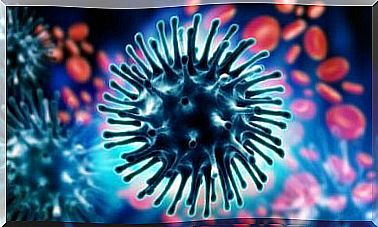Can High Triglycerides Be Controlled With Diet?
Having high levels of triglycerides in the blood could be associated with an increased risk of cardiovascular disease. There are several drug treatments to correct this problem.
However, as with cholesterol, it is possible to make a slight decrease in these lipids through a healthy lifestyle. A varied, balanced diet with the nutrients that we will show you below can help prevent heart-related diseases.
Eat more omega 3 fatty acids
Unlike omega 6 fats, which are inflammatory, omega 3s have the ability to mitigate systemic inflammation. In addition, they have the ability to slightly reduce cholesterol and triglyceride levels, as stated in an article published in the journal Lipids in Health and Disease.
This nutrient is found in oily fish, vegetable oils, nuts, and avocado. For this reason, increasing the intake of these products can benefit cardiovascular health in the medium term.
However, losing the balance between omega 3 and omega 6 intake through regular consumption of processed products can increase blood triglyceride levels. Therefore, it is recommended to prioritize the intake of fresh food.

Fiber consumption helps reduce triglycerides
Consuming an optimal amount of fiber is able to reduce the risk of carbohydrate-induced hypertriglyceridemia, according to an article published in the journal Current Atherosclerosis Reports .
Diets high in simple carbohydrates and low in fiber are associated with an increased risk of high blood triglyceride levels. However, regular intakes of this substance, from fruits and vegetables, seem to reduce blood lipid levels and, with it, the risk of coronary heart disease.
Fiber can be found frequently in the plant kingdom. Its soluble version comes, above all, from fruits and vegetables. Meanwhile, the insoluble variety is typical of cereals and whole grains. Consuming refined foods or flours reduces the amount of fiber in the diet and increases the risk of diabetes.
On the other hand, fiber ferments at the intestinal level and produces a selective growth of the microbiota, which is positively reflected in many functions of the body.
Antioxidants are helpful too
The effect of antioxidant intake on hypertriglyceridemia has been studied in animal models and an inversely proportional relationship has been concluded, according to a study published in the journal Biomedicine & Pharmacotherapy. However, human trials are lacking to extrapolate these results.
Despite everything, there is evidence that regular consumption of antioxidants, especially tannins and lycopene, reduces the risk of coronary heart disease. This is due to its ability to prevent the oxidation of LDL lipoprotein.
These micronutrients can be found in foods from the plant kingdom, especially tomatoes and berries.

Hypocaloric diet as a possible prevention method
Another model that has been postulated in the scientific literature is the influence of the hypocaloric diet on the lipid profile. According to some experimental studies, low-calorie diets reduce the presence of lipids in the blood, while helping to prevent type 2 diabetes.
In this way, some calorie restriction protocols such as intermittent fasting have proven effective in modulating the level of triglycerides and reducing the risk of developing complex diseases in the medium and long term.
A healthy diet influences triglyceride levels
Healthy lifestyle habits are capable of improving many health-related parameters. Thus, prioritizing the consumption of fresh over processed foods, or increasing the intake of oily fish, are two methods of reducing the level of triglycerides in the blood.
It is convenient to bear in mind that hypercaloric diets that lead to overweight situations make it difficult to keep the markers associated with coronary health under control. Therefore, it is recommended to carry out a varied and balanced diet from the energy point of view.
In addition, the practice of regular exercise is a plus point when it comes to ensuring health and reducing the risk of metabolic pathologies.









